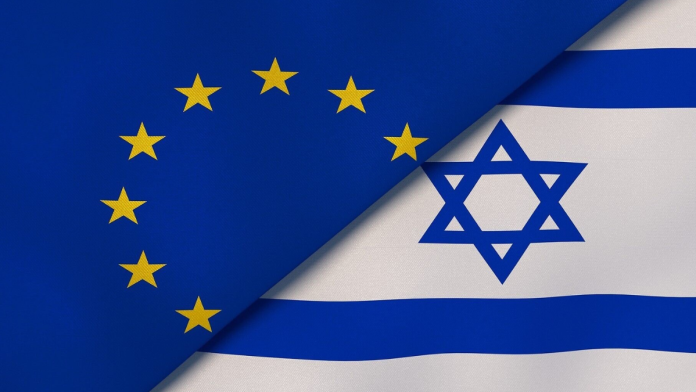Denmark, which currently chairs the EU Council of Ministers, has joined a group of European Union member states calling for sanctions against Israel over the ongoing war in Gaza. Danish Foreign Minister Lars Løkke Rasmussen announced that his country is ready to back penalties against certain Israeli cabinet members and supports suspending the trade chapter in the EU-Israel Association Agreement.
He dismissed claims from Jerusalem that such measures would strengthen Hamas, saying the goal is the opposite. According to Rasmussen, Israel’s current policies are undermining the two-state solution, and stronger action is needed to send a clear message. Denmark has suggested innovative steps, including tariffs on goods from occupied territories, as a way to act even if some EU countries continue to block tougher measures.
Rasmussen said that words are not enough and that sanctions should be considered. He stressed that the humanitarian crisis in Gaza requires urgent action from the international community and that Denmark is prepared to move beyond statements.
Divided EU Foreign Ministers
The call for sanctions was made during an informal meeting of the 27 EU foreign ministers in Copenhagen. The meeting showed that EU countries remain deeply divided over how to respond to Israel’s actions in Gaza.
Dutch foreign minister Caspar Veldkamp resigns after cabinet rejects tougher Israel sanctions
EU High Representative Kaja Kallas admitted that the lack of agreement is hurting the EU’s global credibility. She said that while options such as sanctions and trade suspensions are on the table, not all member states are willing to support them. Some countries argue that dialogue with Israel is more effective than restrictions.
France, Spain, Ireland, and the Netherlands have voiced support for stronger steps, including suspending parts of EU-Israel cooperation programs. In contrast, Germany and Italy have opposed these proposals, with German Foreign Minister Johann Wadepuhl stating that programs like Horizon Europe fall into the civil sphere and should not be tied to military actions. Hungary and the Czech Republic have also resisted moves toward sanctions.
During the press conference, Kallas also said that although humanitarian aid to Gaza has increased in recent months, the efforts are still not enough to address the crisis. She stressed that Israel’s military decisions, such as declaring Gaza City a combat zone, risk worsening the humanitarian situation.
Growing Pressure but No Agreement
The debate within the EU reflects broader differences over how to deal with the conflict. Some foreign ministers support sanctions, tariffs, or suspending agreements, while others emphasize Israel’s right to defend itself against Hamas.
Latvian Foreign Minister Baiba Braze said Israel’s actions were covered by its right to self-defense. Czech Foreign Minister Jan Lipavský questioned the factuality of UN reports on starvation in Gaza, while praising Kallas for helping secure humanitarian corridors earlier this year.
One minister described the measures as necessary to pressure Israel’s government, not the country itself. Others maintained that dialogue and humanitarian channels remain the best approach.
Despite these differences, EU officials say they are in constant contact with Israel to push for more humanitarian aid. They point to recent progress, such as more trucks entering Gaza, additional border crossings, and repairs to some critical infrastructure. This progress followed talks between Kallas and Israeli Foreign Minister Gideon Sa’ar in June, where both sides agreed to increase humanitarian assistance.
However, officials also acknowledge that the steps taken so far are insufficient to meet the needs of the civilian population. The meeting in Copenhagen did not result in new binding decisions. The EU remains divided, with some member states pushing for stronger action while others continue to block such moves. For now, the options for sanctions and suspending agreements remain on the table, but no consensus has been reached.


